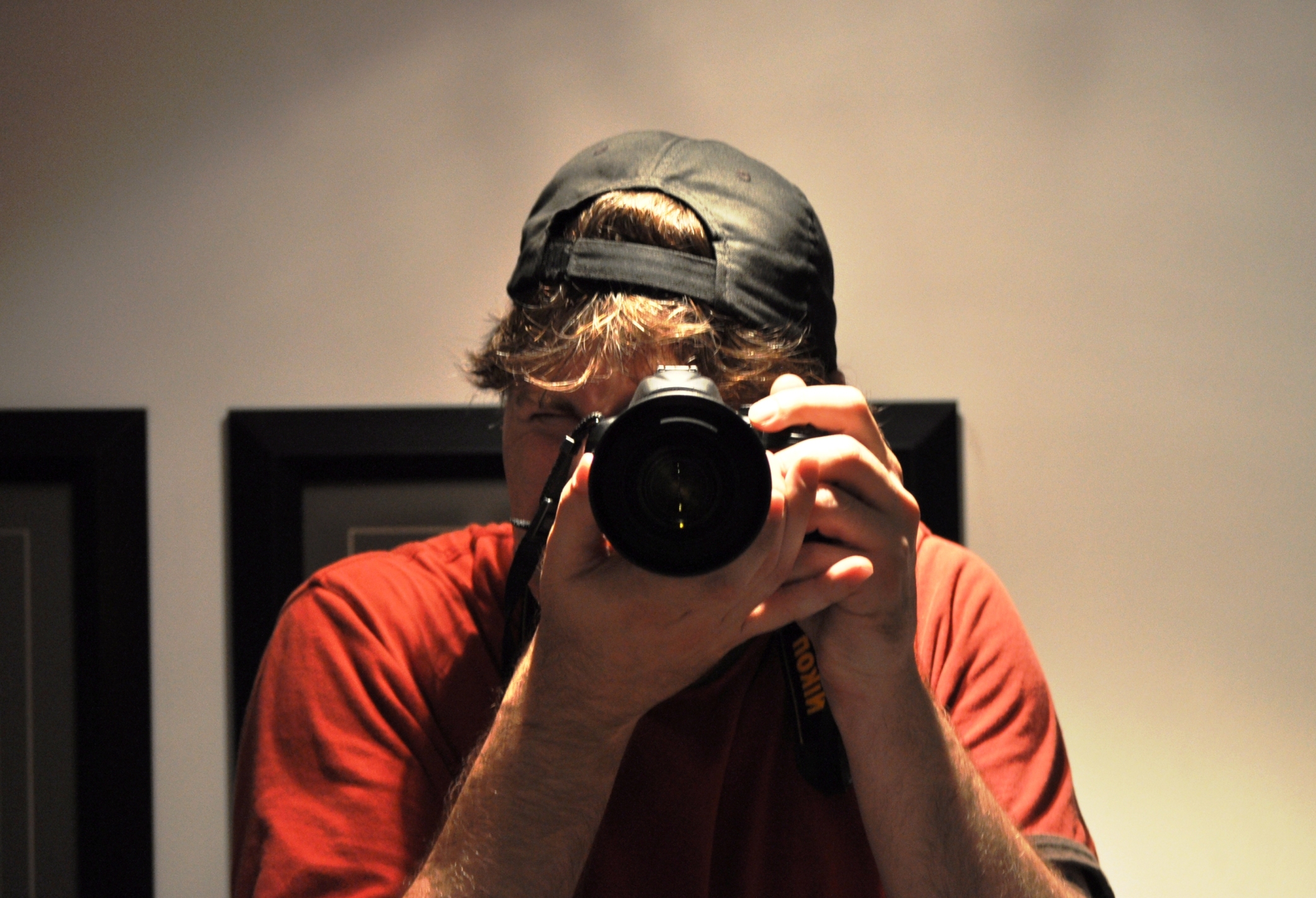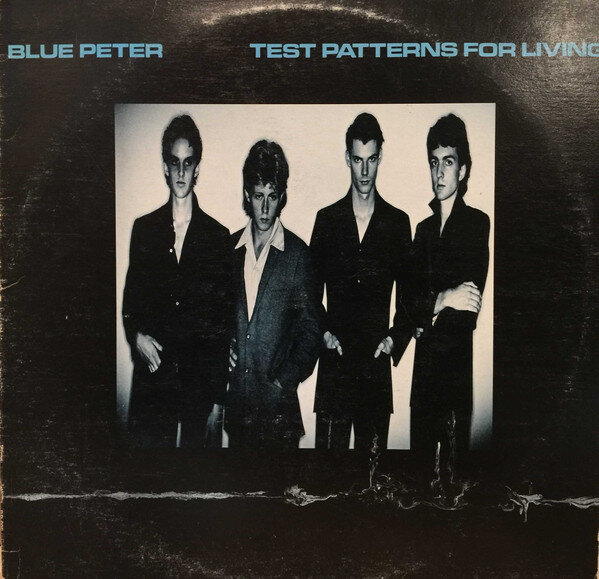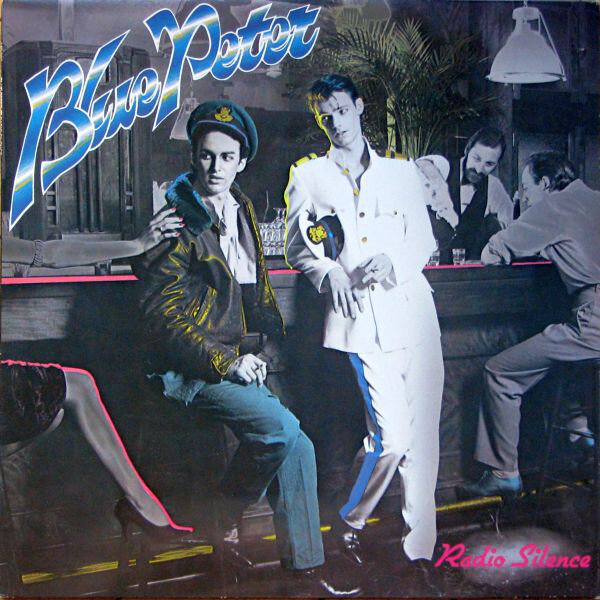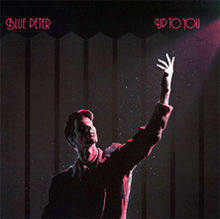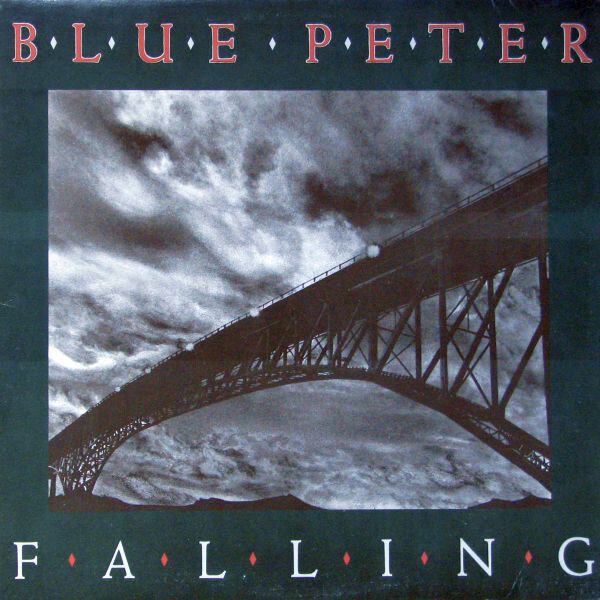Don't Walk Past: A Retrospective of Blue Peter
Click below on the streaming service of your choice to listen to the playlist as your read along.
This week witnessed the untimely passing of Paul Humphrey. Given the recent attention here at Ceremony to Toronto acts from the late 1970s and early 1980s such as Teenage Head and Martha and the Muffins, this occasion seems right to shine a light on Humphrey’s band, Blue Peter. Over their seven-year tenure and four releases, Blue Peter contributed some of Canada’s all-time great songs and iconic entries of the new wave era.
Formed in the Toronto suburb of Markham in 1978 by Humphrey (vocals, guitar, & keyboards) and Chris Wardman (guitar), Blue Peter’s line-up was completed by Geoff McOuat on bass and Ron Tomlinson on drums. I can’t find any references to how the band chose the name, but ‘Blue Peter’ at the time of the band’s formation was best known as a popular British children’s television show (still running today). It was also a blue maritime signal flag as well as the name for two different movies in 1928 and 1955.
The band’s progress quickly led to Paul dropping out of York University to pursue a music career. In 1979, they released their first EP (at 7 songs and 33 minutes, it could also be considered a mini-album or LP), Test Patterns for Living, via Ready Records, a Toronto indie label formed by Angus MacKay and Andy Crosbie in 1979 to capture the spirit of the UK indie labels, such as Stiff Records. Their label helped bring many Toronto bands to market such as The Demics, Spoons, Battered Wives, The Extras, Teenage Head, and local alternative radio station, CFNY’s staff novelty single, “Working on the Radio.” Blue Peter would release all their records via Ready records and the relationship between CFNY and Blue Peter would be critical in getting the band’s music out to a willing audience in southern Ontario and eventually across Canada. They also landed an opening slot for The Boomtown Rats at the Toronto club, The El Mocambo, which helped boost their local cachet.
The band performing in their early days, with Geoff McOuat on bass (left), Ron Tomlinson on drums, Paul Humphrey singing, and Chris Wardman tucked behind on guitar.
The debut album dwelled solidly in the power-pop, punky spirit of the times. Tight guitar licks, plenty of tempo, and hints of rockabilly and old-school blues put the band into the local scene established by the likes of Teenage Head and The Diodes. Their penchant for shouted singalong vocal harmonies and Humphrey’s smooth, distinctive voice also gave the band a strong sonic link to the UK pub rock sound. “Factory Living” gained the band airplay on CFNY and gave them some profile beyond the clubs of downtown Toronto.
Ron Tomlinson was replaced by Mike Bambrick on drums in 1980 as Blue Peter recorded their first LP, Radio Silence. The single, “Video Verité,” was met with stronger local success as CFNY listeners again embraced the band. The title track, with a Stranglers styled synth line, also grew in popularity which increased the attention and attendance for the band and their shows. Radio Silence was a marked progression from the debut, featuring less of the power-pop style and leaning more into a purer pop and new wave feel. The smart rhythms, hooky melodies, added keyboard accents, and sharp edges further linked the new sound to the emergent new wave and post-punk genres. The songs were also stronger in composition, offering a greater variety of styles and moods, such as the song’s closer, “Take Me to War.” The album was one of the best new wave releases from Canada and “Radio Silence” was as slick and catchy as anything coming out of the US or the UK.
Though the Canadian music industry was growing, in the early ‘80s it was still tough for acts to gain international prominence, especially when inhabiting the already less popular genres of modern rock. Blue Peter was building a strong following across Canada’s cities and university campuses, but not having much commercial success nor interest from outside the nation’s borders. A notable high point for the band in 1981 was opening for The Jam at their Toronto and Ottawa shows. However, they were also set adrift for a period from their label, resorting to releasing their next single in 1981, “Chinese Graffiti,” via their own label, AWOL Records. The band also changed bassists during this time, with Rick Joudrey replacing Geoff McOuat, leaving founders Humphrey and Wardmen as the mainstays. It was an up-and-down time for the band, but perseverance paid off.
The cover for the “Chinese Graffiti” single
The EP, Up to You, came out in 1982 with the band back with Ready Records. The title track kicked off the six-song release and saw the band shift its sound again, this time pumping things up with a mix of angular, post-punk guitar and funk-addled beats and horns. This was a pure ‘80s pop sound and I’m not sure it fit the band well; but did give them a dose of lightness and fun their music had lacked to date. It would be the EP’s second track, “Chinese Graffiti,” that distinguished Up to You as another release of renown from Blue Peter. The single immediately became their top single, winning CFNY’s CASBY (which stood for Canadian Artists Selected by You, an award that replaced the station’s first incarnation, the U-Knows, a moniker that played on the name of Canada’s music award, the Junos) award for ‘Single of the Year’ as well as landing the EP in the station’s top thirty of the year for 1982. “Chinese Graffiti” featured backing vocals from local singer, Sherry Huffman, who would go on to have success of her own as Sherry Kean. The song’s indelible hooks driven by distinctive keyboards and Paul’s powerful vocals again raised the bar for the quality of the Blue Peter’s music. The song remains one of Canada’s best pop and new wave songs.
The progression the band had been making, dabbling in differing styles and finding the balance between guitar-driven rock and the new wave fashioned keyboards and melodies came to its immaculate culmination in their second full-length release, 1983’s Falling. Their line-up had changed again as Bambrick was replaced on drums by Owen Tennyson and Jason Sniderman (son of the famed owner of the ‘Sam The Record Man’ music store chain) joined to give the band a full-time keyboardist.
The album’s quality was consistently strong start to finish, ranging up to excellent, and none more so than in what became Blue Peter’s signature track, “Don’t Walk Past.” The LP was produced by Steve Nye, who had also helmed albums for Bryan Ferry, Japan, and XTC. The quality of the production helped bring forward the band’s various parts into a cohesive whole more than any of their prior releases. The album included lovely slow tracks such as “Burning Bridges” and “Newsreel,” something they hadn’t offered much of before, which made for a more varied and complete listening experience through the LP and also brought more impact to the many hooks, edges, and up-tempo moments throughout the rest of the album. Falling only reached #64 in Canada’s national chart but reached #25 on CFNY’s year-end chart, marking the peak of Blue Peter’s commercial success.
The final iteration of Blue Peter (L to R): Humphrey, Wardman, Owen Tennyson, Jason Sniderman, and Rick Joudrey
“Don’t Walk Past” similarly didn’t make many waves as a single, but the song ranks among the best any Canadian act has ever produced. It was the only one of their songs to gain US exposure thanks to the video scoring airplay on MTV. Riding smooth synths, a pulsating electronic rhythm track, a hypnotic guitar riff, and funky basslines, Paul Humphrey delivered his best vocal performance. His smooth, consummate new wave vocal gave the song a panache and grand eloquence that set the song above the rest of their fare. The song even featured a rare drum solo for a new wave track, but that launched into a mesmerizing outro and abrupt, memorable ending. The song had many elements that grabbed your ear, something it still does (for me at least) to this day.
1983 and 1984 were watershed years for Blue Peter, scoring high profile gigs at The Police Picnic festival and an opening slot for Simple Minds during their swing through Canada. They also sold out a show at Toronto’s Ontario Place Forum, which had a capacity of up to 10,000.
As Blue Peter seemed poised to elevate not just their music but the level of their success to a new plateau, the band broke up in 1985 in the midst of developing songs for their next planned LP, Vertigo, which would remain unreleased. In one respect it left Blue Peter with a strong legacy of four strong albums, several outstanding songs, and taking their exit on a high note, but it also left questions of what else might have been possible if they’d stuck it out. As the music world shifted away from new wave over the latter half of the 1980s, Blue Peter would have had to face declining interest in their genre or otherwise shift to a different sound, something they seemed readily equipped to tackle.
Blue Peter has played shows off and on for the past fifteen years, but other than one song for a compilation release in 1997 there has not been any more music. Chris Wardman went on to play with fellow Toronto act, Breeding Ground, along with becoming a producer for many successful Canadian artists such as Leslie Spit Treeo, Chalk Circle, The Watchmen, Meryn Cadell, Emm Gryner, and Art Bergmann. Jason Sniderman played on many of those same recordings and was also an executive in his father’s record store business through to its demise in the early 2000s, suffering the same fate as most music retail stores with the advent of digitization and file sharing.
Paul Humphrey
Paul Humphrey recorded with a few different acts including his own band and released a solo album in 2007, but otherwise focused on a successful career in sound design for theatre and film. His passing on April 4, 2021 after an extended struggle with Multiple System Atrophy (MSA) brought forth an outpouring of grief and commemoration for the excellence of Blue Peter’s contributions to Canada’s rich musical heritage. Blue Peter’s time and output was relatively brief, but they were one of the most consistent and compelling bands of the 1980s Canadian music scene.
The Playlist - song \ album (year)
Same Old Place \ Test Patterns for Living EP (1979)
Living in The Eighties \ Test Patterns for Living EP (1979)
Time and Money \ Test Patterns for Living EP (1979)
Factory Living \ Test Patterns for Living EP (1979)
Video Verité \ Radio Silence (1980)
Attraction \ Radio Silence (1980)
Radio Silence \ Radio Silence (1980)
Take Me to War \ Radio Silence (1980)
Up to You \ Up to You EP (1982)
Chinese Graffiti \ Up to You EP (1982)
Around You \ Up to You EP (1982) - Spotify playlist only
Falling \ Falling (1983)
Don’t Walk Past \ Falling (1983)
All Your Time \ Falling (1983)
Pendulum \ Falling (1983)
Right Stuff \ Falling (1983)
Newsreel \ Falling (1983)
